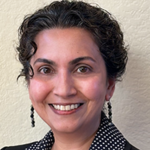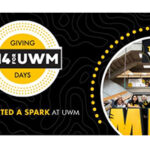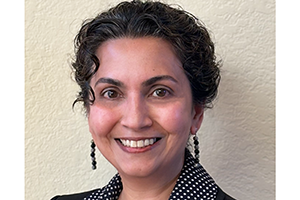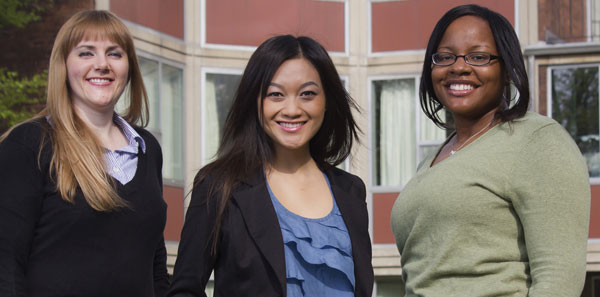
The School of Education’s Counseling Psychology program at the University of Wisconsin-Milwaukee is involved in an ongoing partnership that is helping troubled girls and young women gain control of their lives.
The partnership program with the Lad Lake-St. Rose Campus was started in 2005 by former faculty member Deborah Renard, according to Stephen Wester, professor of educational psychology, who now supervises the program.
“I’ve learned how strong and resilient these girls can be.”
– Ashley Kies
Renard worked with Jim Maro, then executive director of St. Rose, to set up a program that brought third and fourth-year doctoral students in Counseling Psychology to the center to assist with assessments. Malo felt strongly about the university’s importance in working with community agencies, and Renard saw the value of providing practical experience for students, says Wester.
“It has been continued, in various guises, since then,” Wester says. “It really started humming in 2008-2009.” During that academic year, the agreement between St. Rose and UWM was formalized. UWM provides doctoral students and assessment materials, and St. Rose funds a part-time supervisor – chosen from among the doctoral students who have completed their degrees – who serves as a liaison with the School of Education (SOE).
“It is an excellent training opportunity for our students, as well as providing help to the clients of St. Rose,” says Wester. In addition to serving as the outside supervisor for the program, he teaches classes in assessment.
A “desperate population”
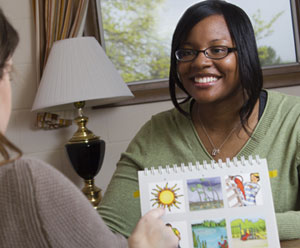
St. Rose, founded in 1848, is an independent, nonsectarian, nonprofit organization serving at-risk girls and women, families in crisis and children of incarcerated parents. In 2010, the center became part of the Lad Lake organization. The center offers both a day program and residential care.
An on-site school works with girls ages 12 to 18 with severe behavioral and emotional problems. Therapists, treatment counselors and teachers work with children and young women to build self-confidence and help them succeed.
“It’s a very desperate population,” says Wester, with up to 95 percent of the young women having been sexually or emotionally abused.
Counseling Psychology students and the SOE provide vital and time-consuming assessments and testing that help guide the staff in making and carrying out treatment plans. The UWM students focus on assessments for residential clients, though they may help with the day program and school as time and resources allow.
“It’s been extremely helpful for us, and allows us to provide a service that most residential facilities can’t,” says Jessica Waldron, clinical coordinator at St. Rose. “It’s a relationship that’s extremely beneficial to our residents and staff as well.”
Challenged and resilient
Ashley Kies, one of the doctoral students who worked with St. Rose during spring semester, wanted to get some experience in a community-based setting, she says. She’s learned from the program as well as from the girls themselves. “In my work at St. Rose, I have learned a number of things, including how much difficulty and challenge adolescent girls often have to endure. But more importantly, I’ve learned how strong and resilient these girls can be.”
As a member of the psychological assessment team, she adds, “I have learned the importance of possessing a combination of flexibility, understanding and patience, as well as how crucial it is to exhibit multicultural competence and humility.”
The assessments the UWM students provide give center staff hard data that may help confirm hypotheses about the issues the girls are struggling with, says Wester. The young women, mostly between 15 and 17, often have built strong protective barriers because of turmoil and trauma in their lives, agrees Waldron. “They come in with very brave faces. They’ve built walls, and sometimes it’s easier for them to talk with people they aren’t with every day.”
The UWM students work with the professionals at St. Rose and are at the table in meetings with mentors and families, according to Waldron. In addition to doing assessments, the students prepare summaries of their work and the findings of psychiatrists, case workers and therapists that help guide recommendations for the girls’ futures, says Waldron. “They give us another perspective, and help give us an accurate sense of what’s going on. Are we going in the right direction or do we need to do something different? They’re really part of the treatment team.
“This absolutely would not be part of our program without the partnership with UWM,” she adds.
“I like to think we have met the challenge,” notes Wester.
